ILTS Insights: Immunology and the allograft revisited?
For ILTS members only, please join now or renew your membership.
Sorry, you don't have access to this webinar!

For ILTS members only, please join now or renew your membership.
Objectives:
- Learn how to track donor-reactive T cells
- Discuss the use of induction therapy, indication, benefits and side effects
- Discuss immunosuppression minimization and the use of mTOR inhibitors
Agenda:
- Introduction
- Tracking the alloresponse in human transplant recipients (Megan Sykes)
- Is induction therapy justified in all LT recipients? (Varuna Aluvihare)
- CNI reduced exposure/withdrawal in maintenance therapy: the role of mTOR inhibitors (Faouzi Saliba)
- Q&A moderated by Geoffrey McCaughan and Eleonora De Martin
Megan Sykes
Dr. Sykes is the director, Columbia Center for Translational Immunology, the director of Research, Transplant Initiative and the director of Bone Marrow Transplantation Research, Division of Hematology/Oncology. She is Professor of Microbiology and Immunology and Surgical Sciences (in Surgery) and Michael J. Friedlander Professor of Medicine. She is a Past President of the International Xenotransplantation Association, served as Vice President of TTS, has repeatedly served on TTS Council and is a member of the Institute of Medicine of the National Academies and of the Association of American Physicians. She has received many honors and awards, including the 2018 Medawar Prize.
Varuna Aluvihare
Dr. Aluvihare is Transplant Hepatology and Governance Lead at the Institute of Liver Studies, King’s College Hospital, and Chair of the British Liver Transplant Group. He qualified at the Royal Free Hospital and completed his professional training at Addenbrooke’s Hospital, Cambridge. He undertook MRC funded Training (PhD) and Clinician Scientist fellowships in Immunology/Molecular Biology at the worldrenowned MRC Laboratory of Molecular Biology, University of Cambridge. He was awarded a 5-year HEFCE Senior Lecturer Fellowship and an ROTRF grant in transplantation research at King’s College Hospital.
Faouzi Saliba
Dr. Saliba is an Associate Professor in Hepatology and Gastro-Enterology and at the University of Paris-Saclay, France and is in charge of the Intensive Care and Endoscopy Unit at the Hepato-Biliary Centre and Liver Transplant Unit at Paul Brousse Hospital (Assistance Publique-Hôpitaux de Paris). He is a consultant in Hepatology and Gastro-Enterology and has been working for over 30 years in the management of patients affected with hepato-biliary diseases and liver transplantation. He has been in the Administrative Board of Paul Brousse-Bicètre-Béclère Hospital group. He’s a member of several national and international societies. Dr Saliba is on head of a clinical research unit at Paul Brousse Hospital.
Geoffrey McCaughan
Dr. McCaughan is currently the AW Morrow Professor of Medicine (Gastroenterology and Hepatology) at the Royal Prince Alfred Hospital and the University of Sydney. He is also Director of Transplant Hepatology, the GE/Liver Diagnostic Laboratory, and the Liver Immunobiology Research Laboratory Centenary Research Institute for Cancer and Cell Biology. His primary clinical interests are liver transplantation, viral hepatitis and autoimmune hepatitis.
Eleonora De Martin
Dr. De Martin is a transplant hepatologist at Centre Hépato-Biliaire, Paul Brousse Hospital in France. She is the Vice-Chair of ILTS Vanguard Committee and topic coordinator of the ILTS Liver Transplant Immunology Special Interest Group. Her fields of interest include liver transplantation, autoimmune hepatitis in particular severe acute and fulminant forms and hepatic toxicity of immunotherapy for metastatic cancer.








